We received concerned mails from all over the world about the Moscow Cinema Museum (Musei Kino). On 27 October 2014, the entire professional staff of the museum - 22 employees, including all curators, archivists and film programmers - resigned their posts. It was impossible for them to continue their work under the new leadership of the Museum. On 1 July 2014, the Ministry for Culture had chosen not to extend the contract of Naum Kleiman, one of the founders of the Moscow Cinema Museum and its director for over 25 years. Kleiman is also the world's leading Eisenstein scholar, director of the Eisenstein-Centre and winner of the Jean Mitry Award in 1994. Instead, a new director was appointed: Larisa Solonitsyna, editor in chief of the newspaper SK News, the official publication of the Association of Filmmakers of the Russian Federation. Reportedly, this was a very unhappy match. Since then, the work of the Museum is paralyzed, current matters are not being solved, partners are renouncing further cooperation. Kleiman and the museum staff received solidarity from all over the world, including an open letter to Dmitri Medvedev about Russian film heritage from documentary maker Mark Cousins, actress Tilda Swinton and Cannes festival director Thierry Fremaux on Thursday 30 October. The staff also received a proposal from the Pushkin State Museum of Fine Arts, which is planning to create a cinema department. This museum proposes to make the Moscow Cinema Museum a part of its structure: a big developing museum association under its aegis, what gives the Moscow Cinema Museum a possibility to obtain its autonomous building with exhibitions and film programs. The Moscow Cinema Museum summons their museum colleagues, researchers, filmmakers and film-lovers all over the world to support this initiative by sending a comment of support to pr_museikino@mail.ru or help.cinemamuseum@gmail.com. We hope Mr. Kleiman and his staff can continue their good work. This post is a salute to them and to the Russian film heritage. The classic Russian and Soviet postcards are from Didier Hanson's wonderful collection and from ours.

A Who is Who of the Russian silent cinema. In a circle from left: actor Vladimir Maksimov (with bear), actress Vera Kholodnaya, actor Vitold Polonsky, actor Ivan Khudoleyev, actor Ivan Mozzhukin, director Petr Cardynin and actor Ossip Runitsch. Russian postcard, no. 108. Collection: Didier Hanson.
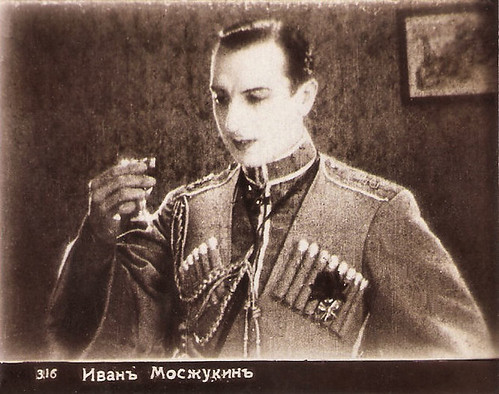
Ivan Mozzhukhin. Small Russian collectors card, no. 316.
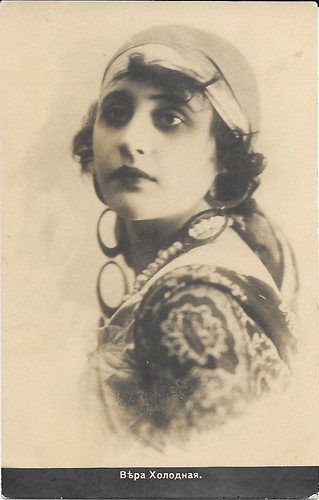
Vera Kholodnaya. Russian postcard. Collection: Didier Hanson.
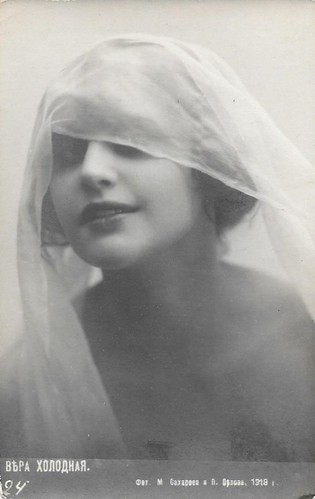
Vera Kholodnaya. Russian postcard, no. 24, 1918. Collection: Didier Hanson.
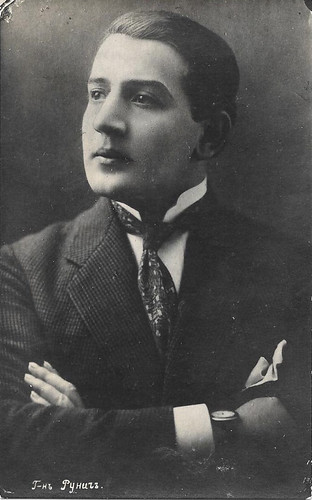
Ossip Runitsch. Russian postcard. Collection: Didier Hanson.
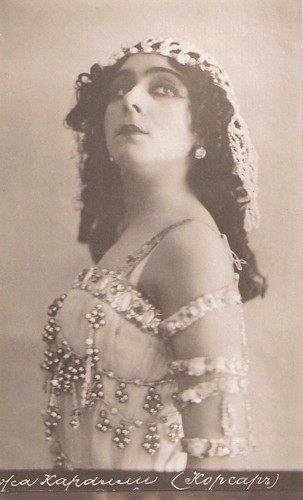
Vera Karalli. Vintage postcard.
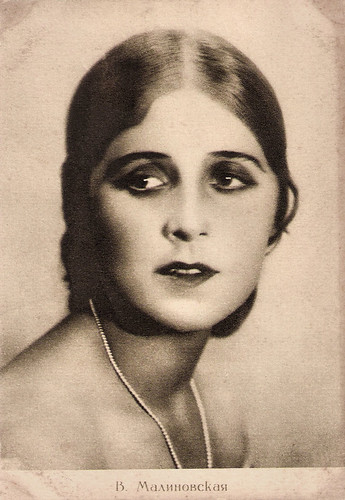
Vera Malinowskaja. Russian postcard by Roznak, Moscow, series no. 4, no. A 2400, 1927. Published in an edition of 25,000 cards.
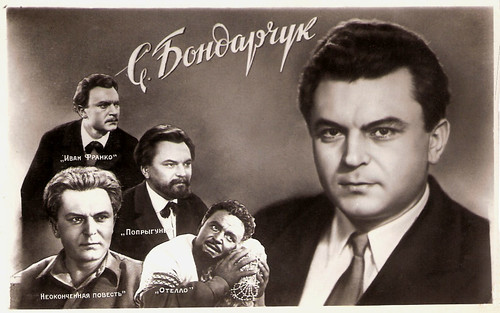
Sergei Bondarchuk. Soviet postcard by Molot, no. 34, 1959. This postcard was printed in an edition of 75.000 cards. Retail price: 75 K.
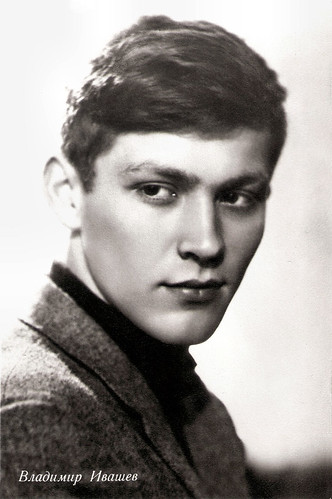
Vladimir Ivashov. Russian postcard by Izdanije Byuro Propogandy Sovietskogo Kinoiskusstva, no. M 78052, 1962. Retail price: 8 kop.
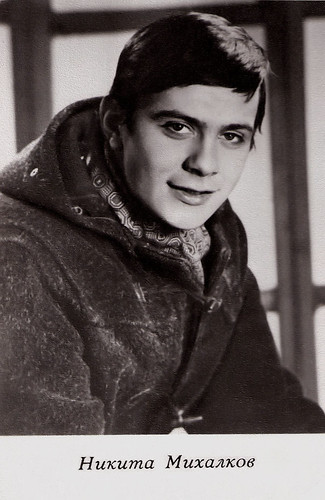
Nikita Mikhalkov. Russian postcard by Izdanije Byuro Propogandy Sovietskogo Kinoiskusstva, no. 4896, 1967. This postcard was printed in an edition of 100.000 cards. Retail price: 8 Kop.
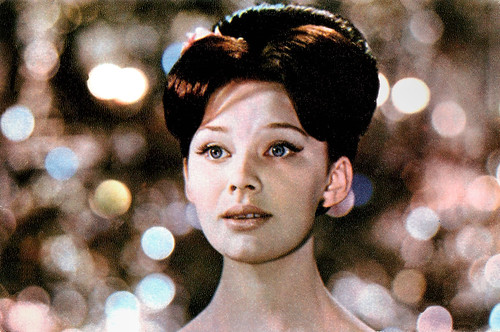
Lyudmila Savelyeva. Russian postcard by Izdanije Byuro Propogandy Sovietskogo Kinoiskusstva, no. A 08351, 1969. This postcard was printed in an edition of 500,000 cards. Retail price was 6 kop. Photo: publicity still for Voyna i mir/War and Peace (Sergei Bondarchuk, 1965-1967).
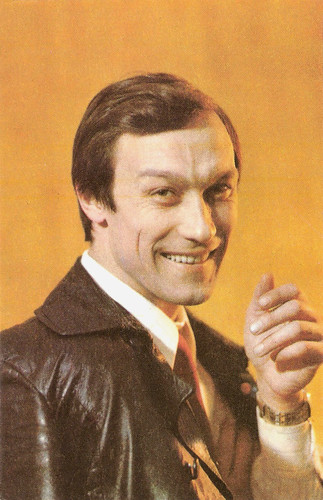
Oleg Yankovsky. Russian postcard by Izdanije Byuro Propogandy Sovietskogo Kinoiskusstva, nr. 2114221, 1977. This postcard was printed in an edition of 186.000 cards. The price was 6 kop.
Sources: BFI, Pordenone Silent Film Festival (Italian) and Wikipedia.

A Who is Who of the Russian silent cinema. In a circle from left: actor Vladimir Maksimov (with bear), actress Vera Kholodnaya, actor Vitold Polonsky, actor Ivan Khudoleyev, actor Ivan Mozzhukin, director Petr Cardynin and actor Ossip Runitsch. Russian postcard, no. 108. Collection: Didier Hanson.

Ivan Mozzhukhin. Small Russian collectors card, no. 316.

Vera Kholodnaya. Russian postcard. Collection: Didier Hanson.

Vera Kholodnaya. Russian postcard, no. 24, 1918. Collection: Didier Hanson.

Ossip Runitsch. Russian postcard. Collection: Didier Hanson.

Vera Karalli. Vintage postcard.

Vera Malinowskaja. Russian postcard by Roznak, Moscow, series no. 4, no. A 2400, 1927. Published in an edition of 25,000 cards.

Sergei Bondarchuk. Soviet postcard by Molot, no. 34, 1959. This postcard was printed in an edition of 75.000 cards. Retail price: 75 K.

Vladimir Ivashov. Russian postcard by Izdanije Byuro Propogandy Sovietskogo Kinoiskusstva, no. M 78052, 1962. Retail price: 8 kop.

Nikita Mikhalkov. Russian postcard by Izdanije Byuro Propogandy Sovietskogo Kinoiskusstva, no. 4896, 1967. This postcard was printed in an edition of 100.000 cards. Retail price: 8 Kop.

Lyudmila Savelyeva. Russian postcard by Izdanije Byuro Propogandy Sovietskogo Kinoiskusstva, no. A 08351, 1969. This postcard was printed in an edition of 500,000 cards. Retail price was 6 kop. Photo: publicity still for Voyna i mir/War and Peace (Sergei Bondarchuk, 1965-1967).

Oleg Yankovsky. Russian postcard by Izdanije Byuro Propogandy Sovietskogo Kinoiskusstva, nr. 2114221, 1977. This postcard was printed in an edition of 186.000 cards. The price was 6 kop.
Sources: BFI, Pordenone Silent Film Festival (Italian) and Wikipedia.
1 comment:
I do not know what is happening to this world. We seem to be willing discarding our history and culture, and it is happening everywhere. Russian cinema was vital to the development of the art form. Shameful.
Post a Comment